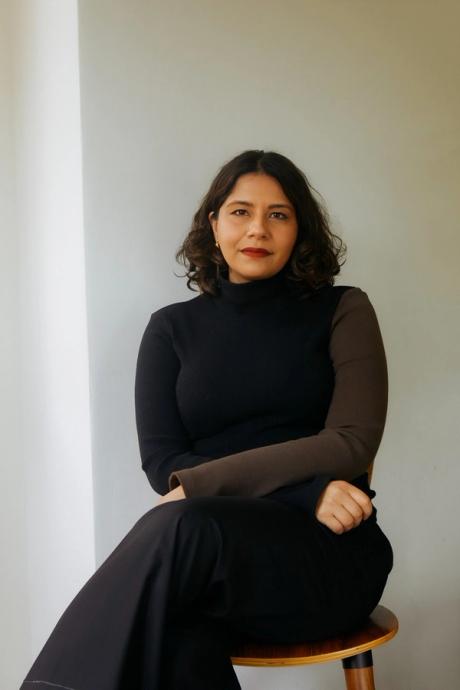
John Akomfrah will work with British curator Tarini Malik on the British pavilion at the Venice Biennale, the British Council has announced.
Malik, former curator of Whitechapel Gallery and Hayward Gallery, both in London, will work with the Anglo-Ghanaian artist for the 60th edition of La Biennale di Venezia, which will take place in the Italian city from April 20 to November 24 2024.
Akomfrah was announced as UK representative in January, shortly before being knighted in the UK King’s New Year’s Honors List for 2023.
In a statement, Miranda Stacey, director of visual arts at the British Council, described Malik as “an exciting and dynamic curator”.
“It changes my life,” said Malik The arts journal. “John is an instrumental, pioneering and genre-defining artist. I am incredibly excited to work with him on this global stage.
The pavilion, says Malik, “will draw on the legacy of work that John has done over the past 40 years.”
“We want to create an exhibition that feels connected to the city of Venice, but also looks at the institution of the British pavilion,” says Malik. “We want to talk about urgent and necessary issues around our time, place and context.”
John’s appointment as a representative of the UK arts scene comes at a “critical transitional moment” for the UK cultural scene, Malik said.
“The visual arts sector in the UK is recovering from and responding to a huge period of upheaval,” she says. “This impact is really starting to be felt at our institutions in terms of their program ambitions and the size of their teams. But there are also some very necessary demands on our cultural institutions to expand their understanding of systemic injustice and other forms of inequality.
Malik aspires to “expand the reach” of Akomfrah’s work through his guardianship of the pavilion.
“We are thinking about different ways to expand the pavilion’s public program,” says Malik. “We want to help the work travel and reach wider and more diverse audiences.”
To achieve this, Malik wishes to develop “generative tools” around the exhibition. “We want to make sure that working in the pavilion is accessible to many different types of people, not just those who have the privilege of being able to visit Venice,” she says.
Akomfrah was born in 1957 in Accra, Ghana, the year the West African country gained independence. He is the son of a revolutionary politician who served in the cabinet of Kwame Nkrumah, Ghana’s first president after independence.
Akomfrah moved to London as a child and rose to prominence in the early 1980s as part of the Black Audio Film Collective (BAFC), an artists’ collective founded in 1982 and based in Hackney, East London . He won several art world awards in 1986 for his first film Handsworth Songs (1986), who examined the impact of the Handsworth race riots which broke out in the British city of Birmingham, causing a number of deaths.
Through his work with BAFC, Akomfrah helped pioneer a form of multi-channel video installation media, through which he has long explored social issues in the UK, ranging from racial injustice, colonialist legacies, migration and climate change. Akomfrah’s use of video has become very influential in the art world.
Malik was born in India and raised in Zambia, Africa, before moving to London to pursue a career in art conservation. She first studied Akomfrah’s work as a student at the Royal College of Art. “During my formative years as an art history student, I spent a lot of time at the British Film Institute, browsing the archives of the Black Audio Film Collective,” she says. “So as someone from the diaspora who was trying to understand my role, his art was incredibly formative for me.
Malik describes the past few months as a “whirlwind”. She was one of six full-time staff, including three curators, to be made redundant at the Whitechapel Gallery in London as part of a restructuring under the new gallery director, Gilane Tawadros. Malik left the gallery in March. She was working on an exhibition of contemporary South African art when the dismissal was announced; the exhibition has since been cancelled.
She previously worked with the curatorial team at the Hayward Gallery in London’s South Bank and with artist Isaac Julien’s in-house team.
“I’m interested in works from the Global South, works that are politically motivated and that speak to different permutations of identity,” she says. “And I’m particularly interested in examining the African and South Asian diasporas here in the UK.”
Malik and Akomfrah will follow in the wake of artist Sonia Boyce and curator Emma Ridgway, now director of the Foundling Museum. Boyce won the Golden Lion for his installation titled feel his way. The post of curator was sponsored, for the second time, by Hong Kong-based British art collector and philanthropist Shane Akeroyd. Akeroyd will support the post until 2030.
